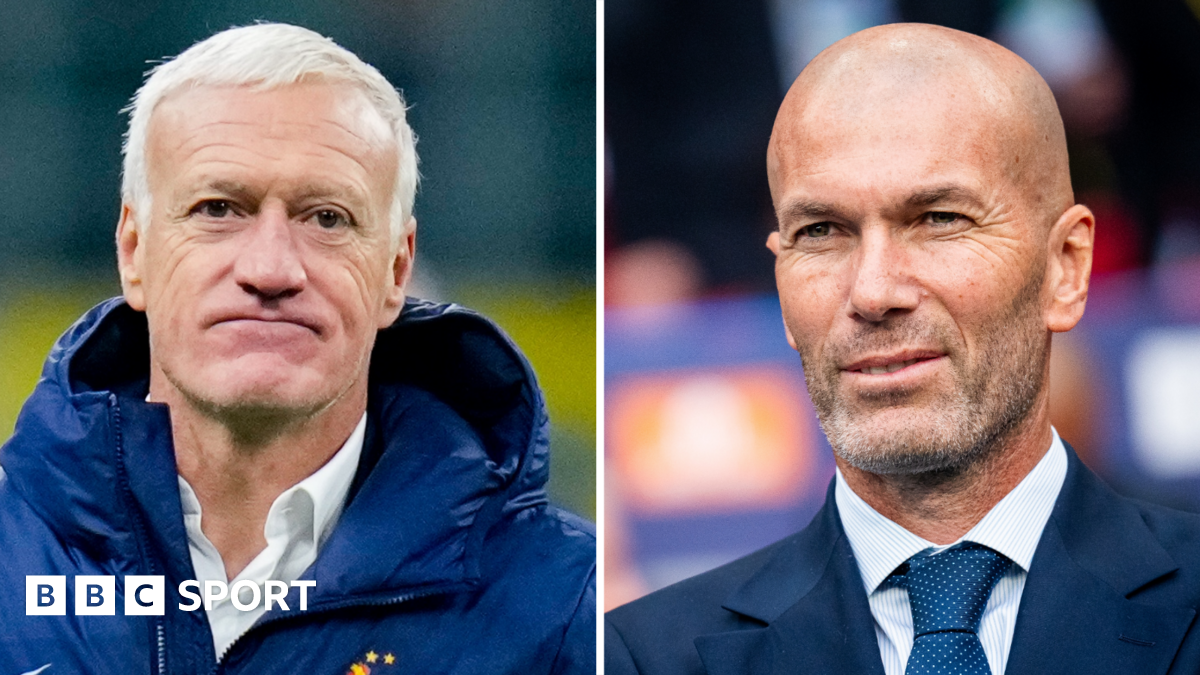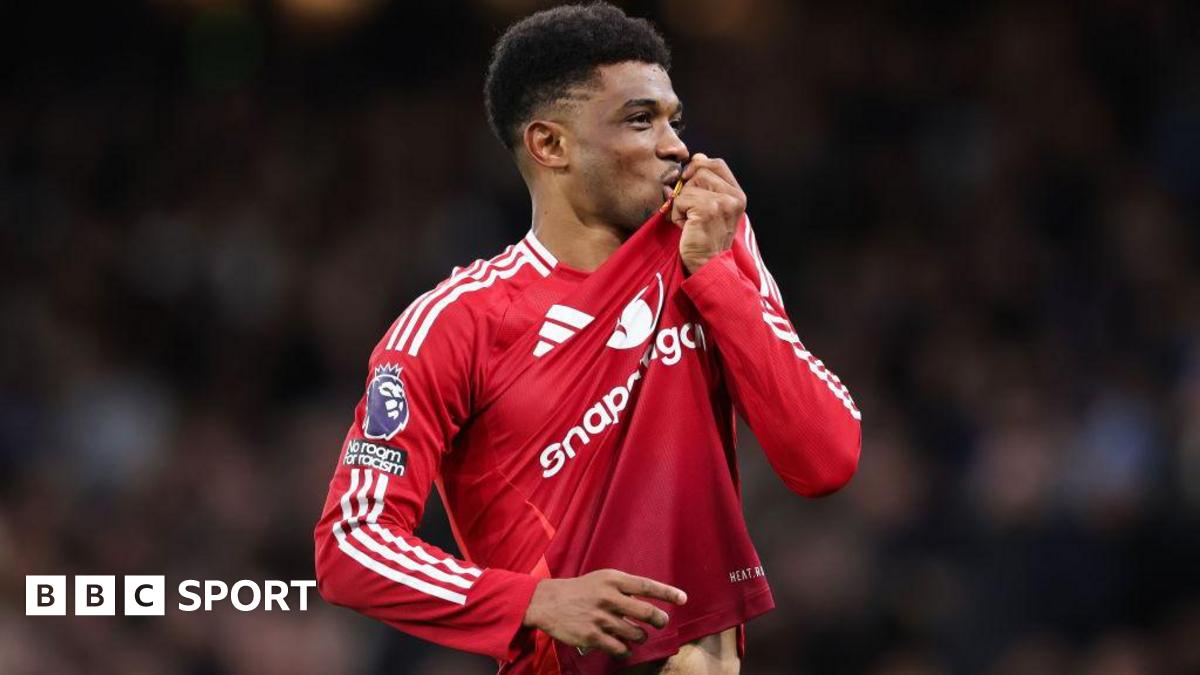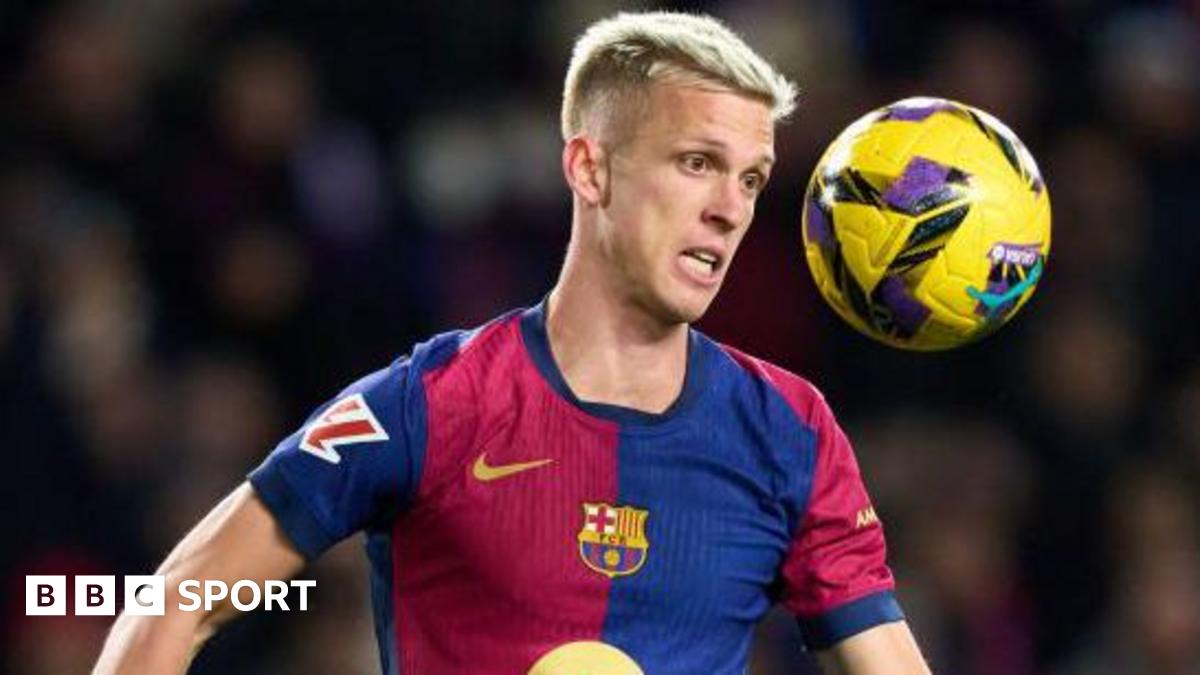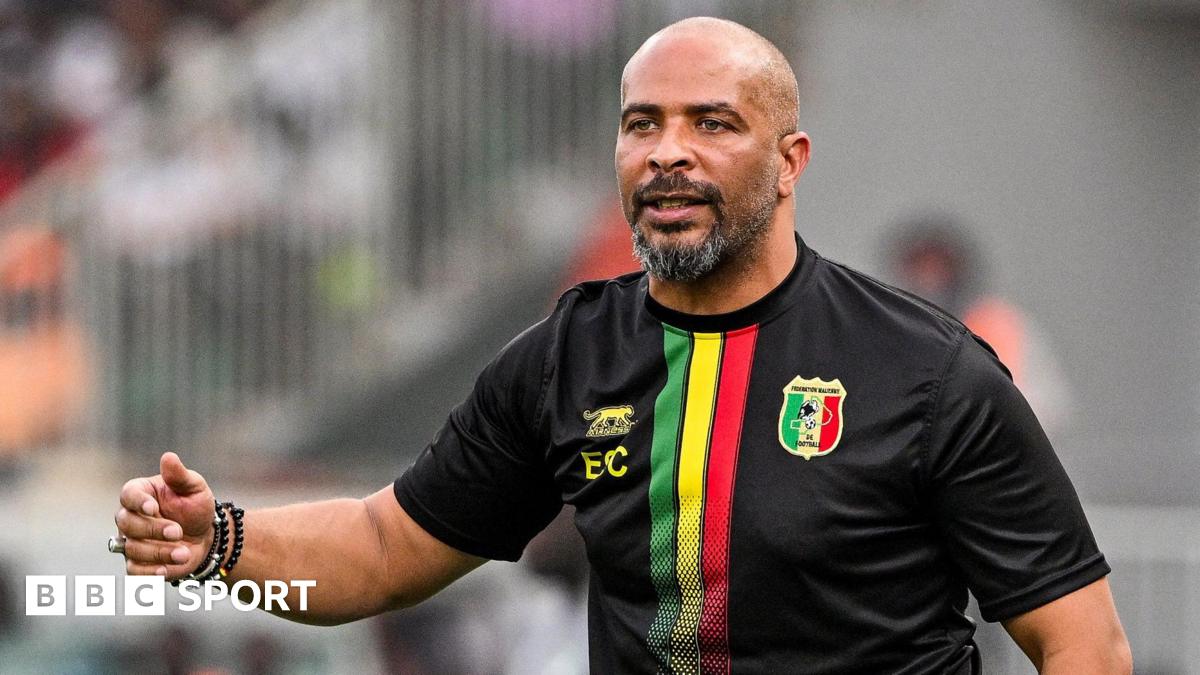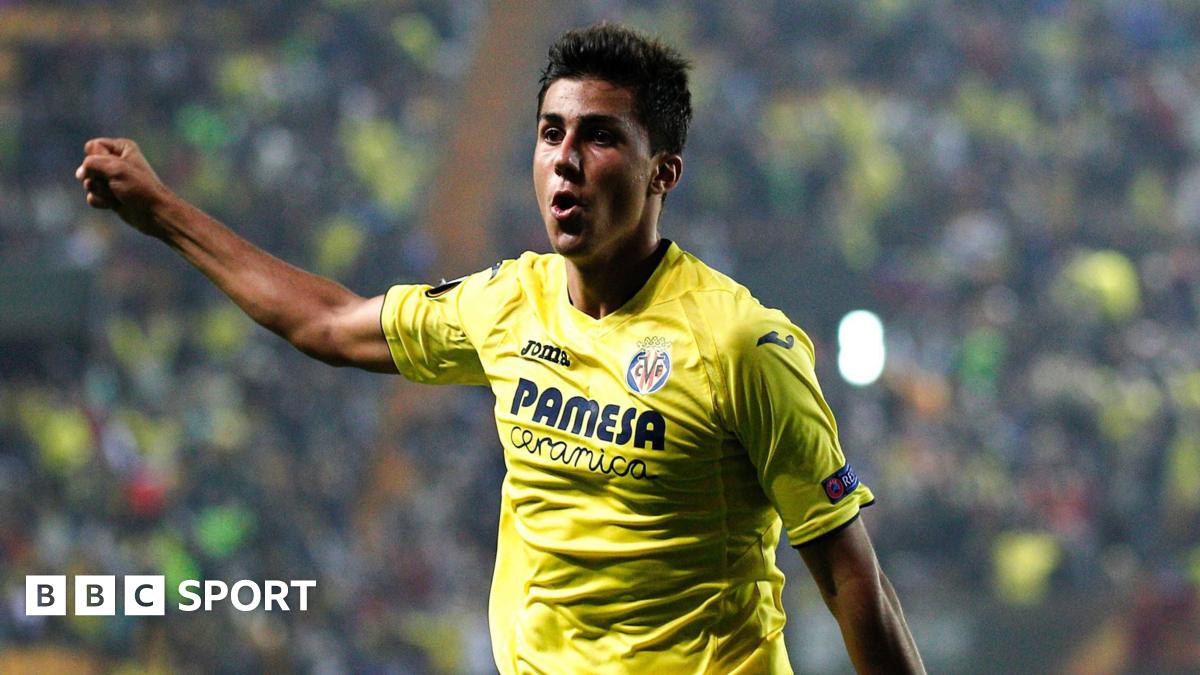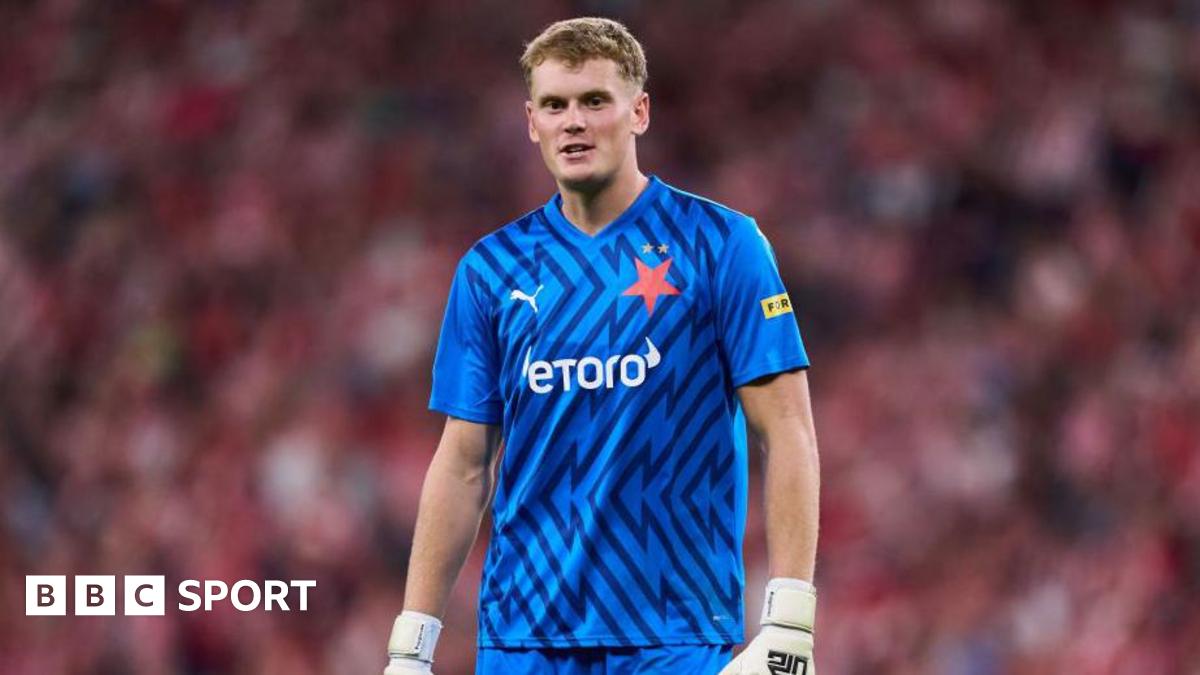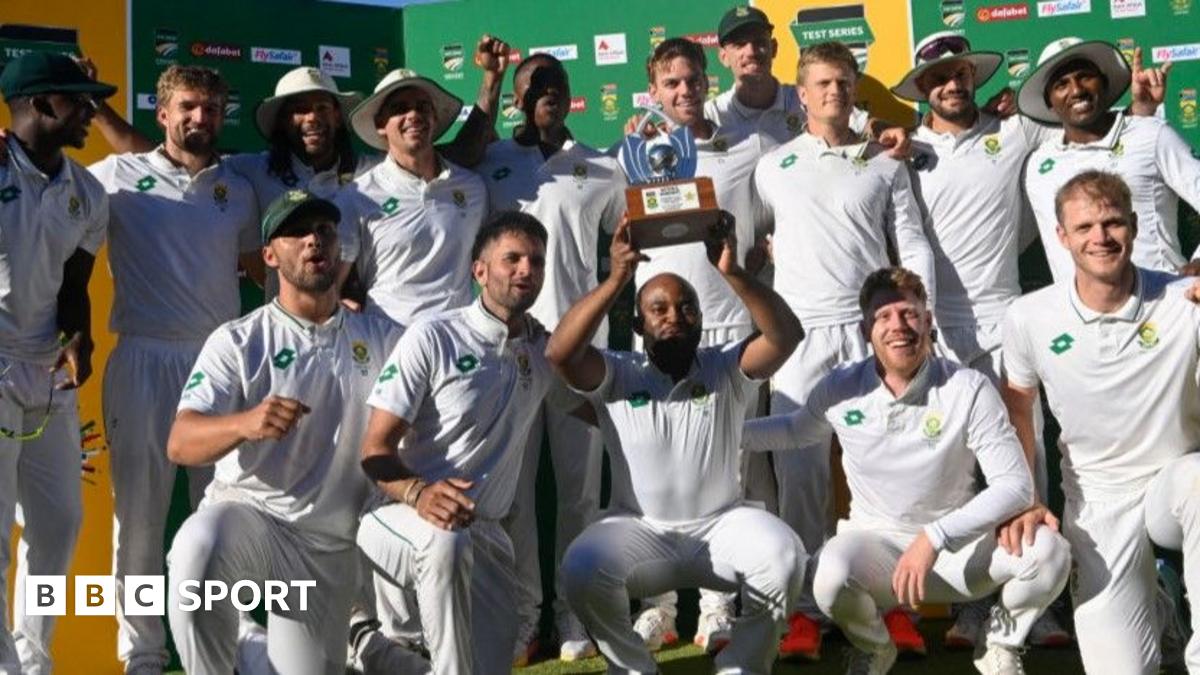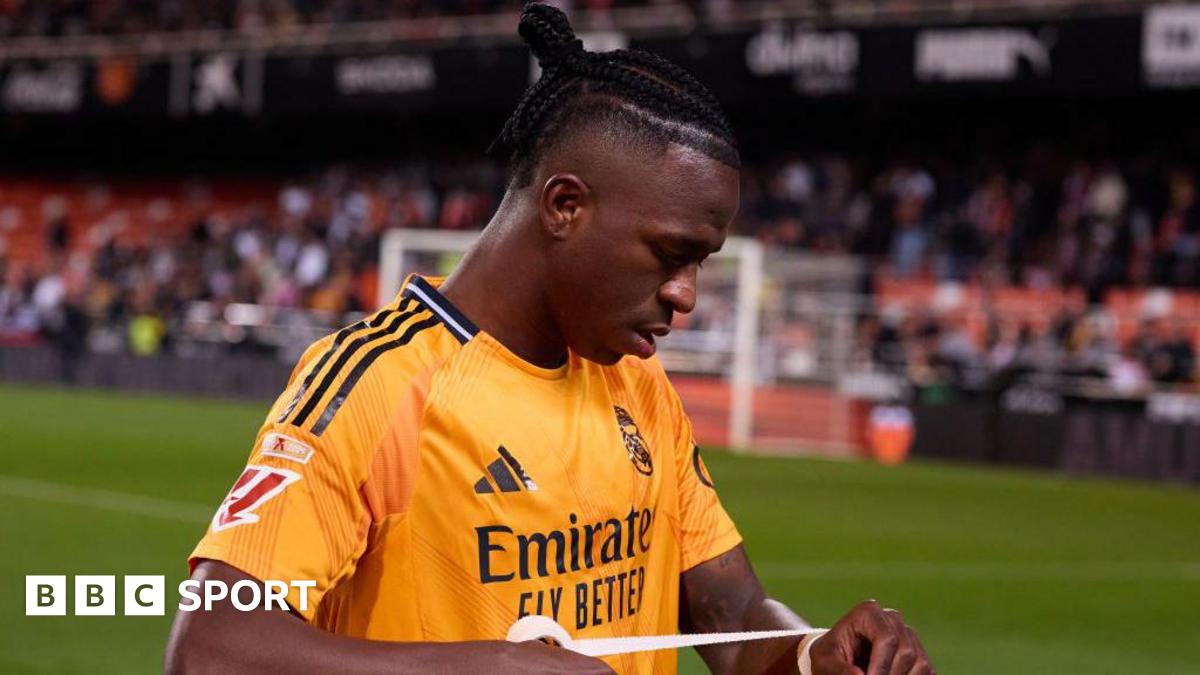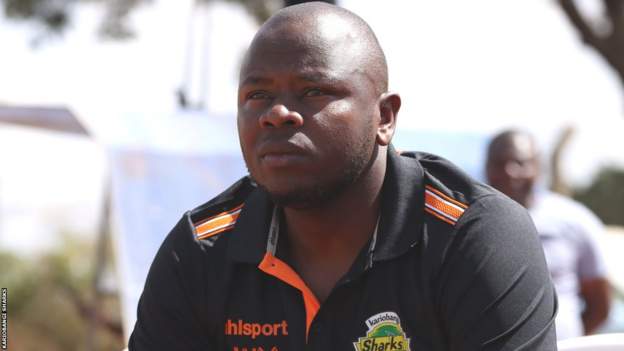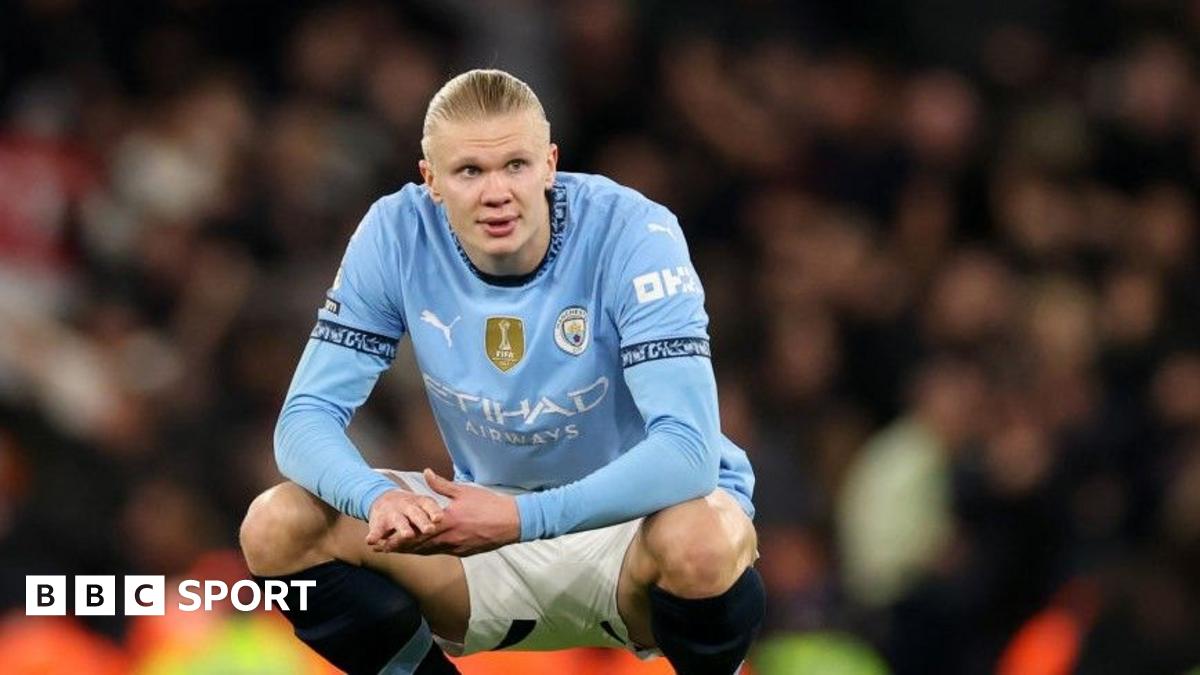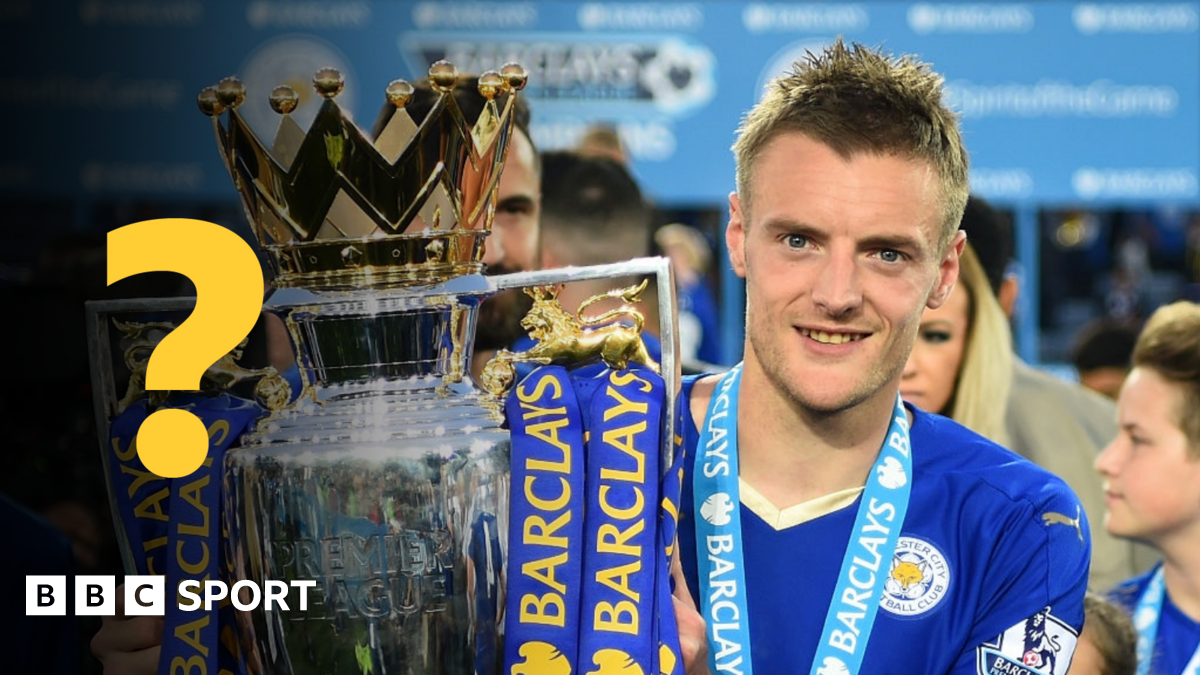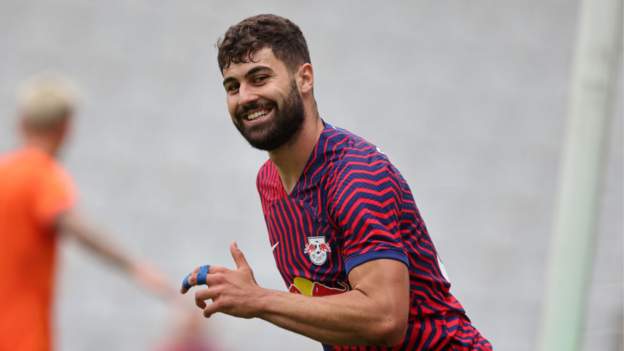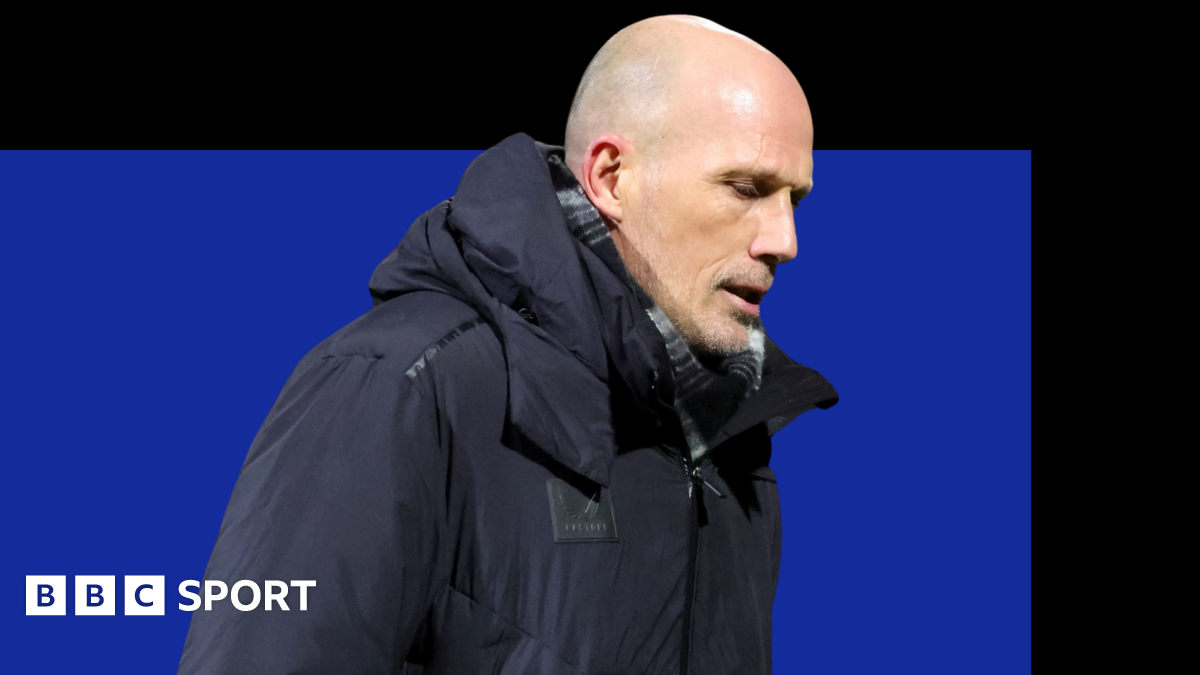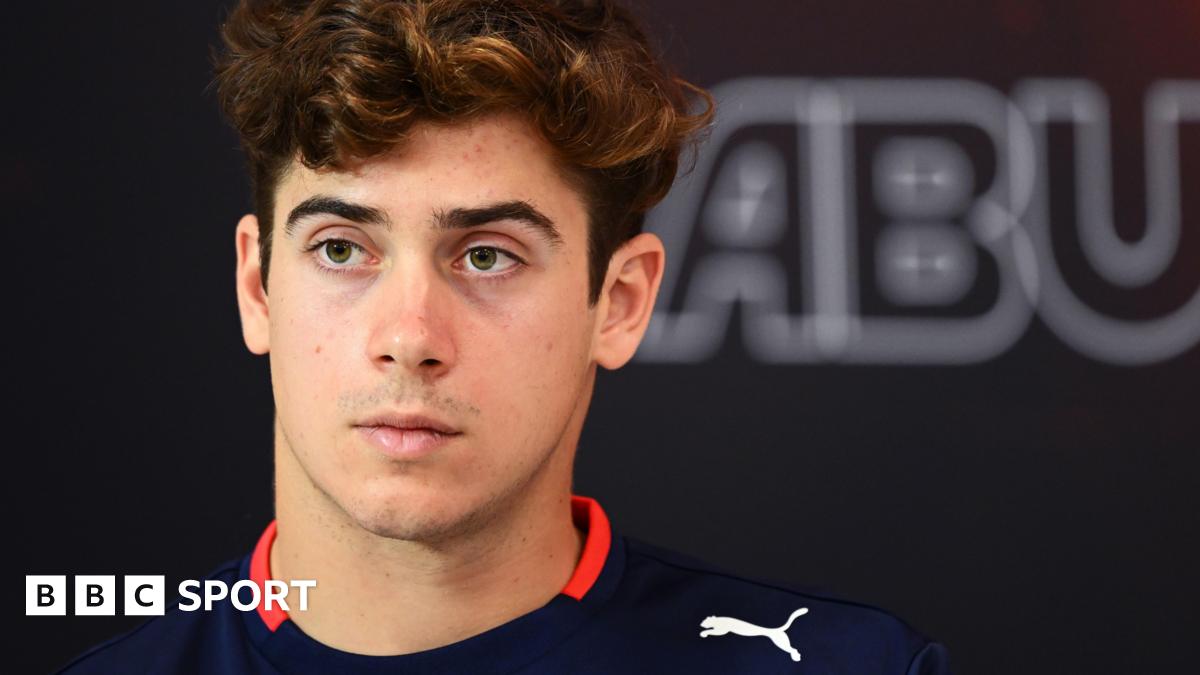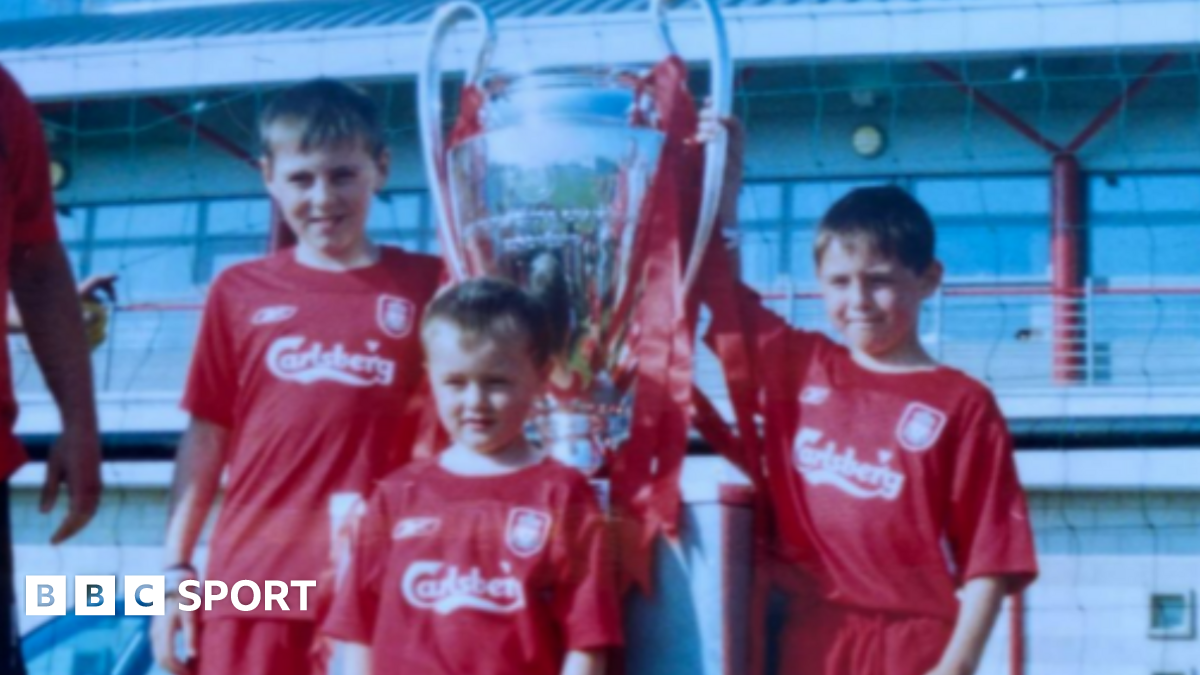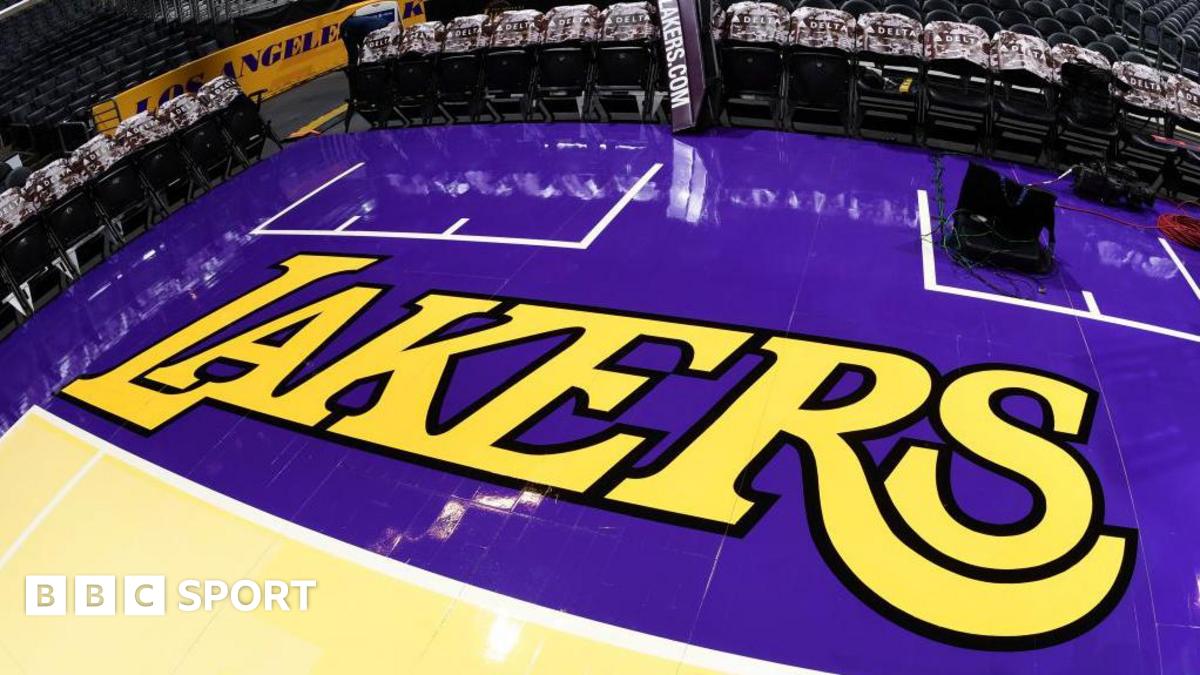While football provides an escape from tedium for many people around the world, for Kenya assistant coach William Muluya the sport has offered a a very different kind of getaway, guiding him away from a violent life in which he saw friends and team-mates die in “a hail of bullets”.
Initially a promising young goalkeeper, the 37-year-old switched to coaching nearly two decades ago and now fulfils a dual role as head coach of Kenyan Premier League side Kariobangi Sharks as well as his role with the men’s national team.
But Muluya’s life could have been very different.
He grew up in the Nairobi neighbourhood of Dandora, home to the largest rubbish dump in the Kenyan capital, alongside a brother and friends who were part of criminal gangs.
“During school holidays, many of my friends were killed in our neighbourhood,” Mulaya recalls, speaking to BBC Sport Africa.
“It was always painful seeing them lying in pools of blood.
“These are the people I grew up with. We did almost everything together. My brother had chosen the wrong ways and was in and out of jail.
“I saw criminal activities being planned in our house by my brother and some of my close friends.
“I knew when they were going for missions [and] the weapons they were going to use. But I wasn’t willing to be part of it.”
‘They died under a hail of bullets’
The young Muluya appeared to have a golden touch, from the church where he served as an altar boy to the football pitch where he was handed a nicknamed linked to Nigeria legend Nwankwo Kanu.
His coaching acumen was visible from those early days, as he constantly questioned the decisions of his own coaches at junior side Ajentos.
Muluya says coaching saved him from a life he could “easily” have pursued alongside his brother, Bernard Lugali.
“Football kept me busy in the time when I could have been in crime or serving as a tout.”
At the Dandora dump, other boys were being taught how to handle guns and organise robberies as part of the fight between gangs who wanted control of Nairobi’s public transport network.
“I saw my friends and brother doing those things and I was like, ‘for me, to make it in life I don’t need to get involved’.
“That’s why I’ve never taken drugs all my life.”
While his brother Bernard survived and is now a reformed character, many of Muluya’s childhood team-mates at Ajentos did not survive.
“From a squad of around 30 players, there could only be five who are alive,” he estimates.
“The other 25 died before they were even 20 – they all died under a hail of bullets.”
Unlike his brother, Muluya was able to go to secondary school thanks to a football scholarship.
He began coaching other youngsters aged just 15 and also served as a referees administrator and community service representative.
His position and contacts meant he could even help those who fell victim to crime.
“I often served as a shield for those who would be mugged or robbed by my friends,” he explains.
“Many times, I heard people had been mugged and I went and got whatever had been stolen and returned it to them.
“I’m able to do it even today through the respect and recognition I’ve earned in the community through football.
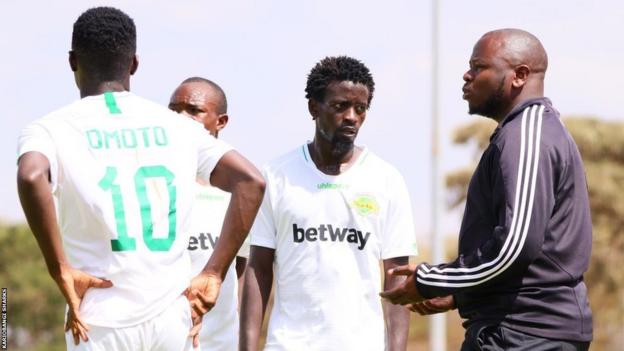
Making waves with the Sharks
After a spell as team manager at Mathare United, Muluya was handed his first senior managerial role seven years ago with the Sharks, winning promotion to the top flight in his first season.
A year later he won Kenya’s domestic cup, allowing his team to compete on a continental level in Africa’s Confederation Cup.
In 2019 the Sharks beat English Premier League side Everton on penalties after a 1-1 draw in a friendly in Nairobi.
“It was a moment to cherish, playing in front of around 85,000 fans,” he remembers. “It will go down in the history of the team and the memories of the individuals who participated. It was a big experience because it’s a chance that you only get once in a lifetime.”
A huge admirer of former Leeds United coach Marcelo Bielsa, he also credits the influence of his own mentors such as Gabriel ‘Kingi’ Njoroge, who handpicked a green Muluya as his deputy at Mathare United in 2012.
“I knew he was destined for greatness,” says Njoroge, who believes Muluya will one day manage Kenya.
“He is coachable, hardworking, humble, patient, clever. He is an honest person, a risk-taker and also a good listener.”
Muluya now tries to put a similar level of faith in his own youngsters at the Sharks.
“Coaching young players is a calling.
“The trust I put in them is key. In our current team we have three players who are still in high school and they are playing in the top league.”
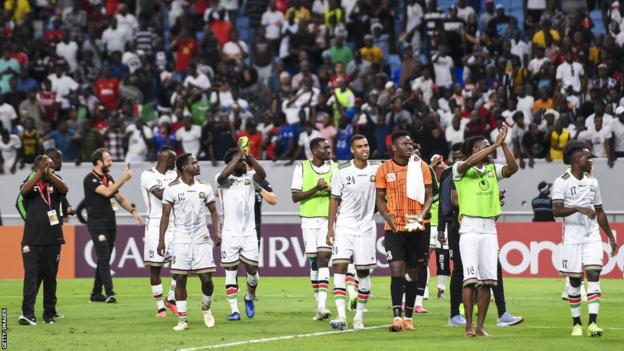
World Cup and Afcon dreams
Muluya is now a key part of the Kenya national team set-up under Turkish head manager Engin Firat.
“He is an experienced coach and has invested a lot in doing background checks of all the players,” says Muluya, who contributes his own vast knowledge of Kenyan football alongside fellow assistant Ken Odhiambo.
The trio are trying to rebuild the team following a nine-month Fifa ban because of government interference which ruled them out of the 2023 Africa Cup of Nations qualifiers.
And the Harambee Stars have produced encouraging friendly performances recently, including a 2-1 win in Qatar, a draw with Russia and a narrow defeat to Iran.
Their next assignment is a 2026 World Cup qualifying group containing Ivory Coast, Gabon, The Gambia, Burundi and Seychelles.
“Firat’s philosophy is already taking shape – the consistency and understanding is there,” claims Muluya.
“We have identified the best talents available and the next step is to create a bond between them and make them work as a team. It is a process that needs consistency.”
With an Africa Cup of Nations set to be held on Kenyan soil for the first time in 2027 as part of a joint bid with Uganda and Tanzania, Muluya believes the national side can perform well and is relishing the prospect of makign his own contribution.
“If someone’s mother, girlfriend or kids were watching, who would not want to give their best performance?
“I foresee Kenya doing well – and what an honour it will be serving as an assistant coach at such a historic moment.”

